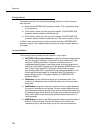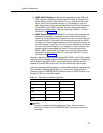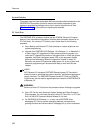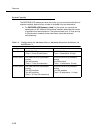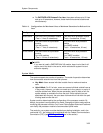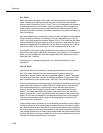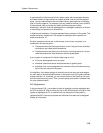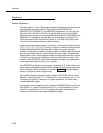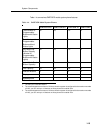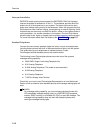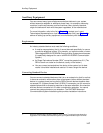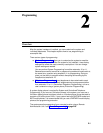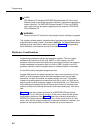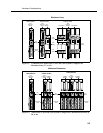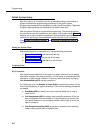
Overview
1-14
Telephones
System Telephones
This guide refers to Lucent Technologies telephones specifically designed to work
with the system as system phones. These include the PARTNER-34D,
PARTNER-18D, PARTNER-18, and PARTNER-6 telephones. You can also use
MLS-34D, MLS-18D, MLS-12D, MLS-12, MLS-6, MLC-6, and the TransTalk©
9000-series wireless phones, including MDW 9000, MDW 9010, MDW 9030P and
MDW 9031P. Pocketphone, although they are not discussed in this guide. For
information about an MLS-model, MLC-model, or TransTalk 9000-series phone,
refer to the documentation that came with the phone.
System phones have several buttons in common: volume control buttons and the
f, C, A, h,! and S buttons. In addition, each phone has
programmable buttons
that can be used for outside lines, pools, extension
numbers, outside phone numbers, or system features. Outside lines and pools, as
well as some system features, require buttons with status lights. Programmable
buttons without lines or pools assigned to them can be programmed with numbers
or features, so you can use the feature or dial the number with one touch. The
number in each PARTNER-model name indicates the number of programmable
buttons with status lights and two
i buttons.
If the PARTNER-model phone has a display, indicated by a “D” in the model name,
users receive messages and prompts when making calls and when programming.
(More information about the display is provided in Chapter 5.) A system display
phone is
required
for system programming.
Valid system extensions depend on which release of PARTNER ACS you have.
Release 1.x extensions are 10 – 41. Release 2.x or later extensions are 10 – 49.
Throughout this guide, all references to “system extensions” are within these
release-dependent ranges.
Valid system lines also depend on which release of PARTNER ACS you are using.
With System 1.x, system line capacities are 01 to 15. With Release 2.0 or later,
system line capacities are 01 to 19. Throughout this guide, all references to
“system lines” are within these release-dependent ranges.



